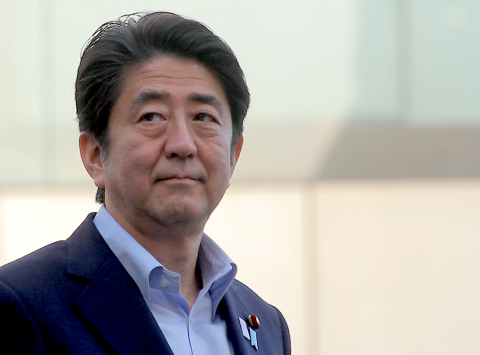The assassination of the former Prime Minister of Japan, Shinzō Abe, in the middle of election campaigns shocked the world news. This tragedy is packed with a number of extraordinary facts, and now has a great effect on the future of Japanese politics. But before speaking of the future, I would like to point out some of these strange factors leading up to this tragic event, and then discuss its political significance in the future of Japan.
Strange factors of the Assassination
First, Abe was no longer the Prime Minister of Japan. It is strange to target a former leader in any political systems. (What is the point of attacking the prime minister of the United Kingdom who has just resigned or the former president of the United States?) However, the nature of Japanese politics allows Abe to remain as a part of a very powerful faction at the Liberal Democratic Party (hereafter LDP), and this faction gives massive support to the next political leaders sharing the same interests.
In this sense, Abe’s lurking presence in the background of Japanese politics had a significant influence on the political decisions that were made at the party level. Regardless of the fact that these decisions were figuratively led and announced by the current Prime Minister and the party leader, Fumio Kishida, Abe’s ideas and opinions mattered in Japanese politics much more than we would expect from the former leaders in many of our political domains.
Second, the assassination was allegedly conducted by a former self-defense force personnel, Yamagami Tetsuya (41 years old). At the initial investigation, he confessed to the authority that his intention for committing this act of violence was “not based on political beliefs” but his personal dislike of Abe’s “general attitude.” An additional investigation reveals that he had a personal grudge against an organization that had some affiliation with the former prime minister, and clearly he planned this criminal act for a long period of time.
Abe’s main political ambition had been to revise the Japanese constitution (which currently makes it impossible for the nation to go to war against any other countries) in such a way that Japan will be able to engage in the act of war (including pre-emptive strikes for national defense among others). In this regard, there is usually little friction between members of self-defense forces and the ongoing LDP’s conservative, right-wing politics.
Third, Japan employs very strict laws against any type of weapons in public space, which makes it impossible for a regular citizen to buy or carry a gun of any kinds. Yamagami seems to have made a very primitive device. Some reports tell us that he had 6 bullets in one barrel and combined three of them into one.
A witness at the scene in Nara prefecture said that the device looked a bit smaller than a professional TV camera and felt the shock wave when he pulled the trigger twice.
It is quite obvious that the former prime minister moved around with specially trained security personnel and police escorts. But it is also clear that nobody was expecting that the suspect standing so close to the back of the former prime minister would manage to land two bullets on his neck with a handmade shotgun.
Most acts of violence against politicians in the world are accompanied by political motives. However, as far as the news report from Japan goes, the motive behind this grave attack has been as vague as those that led to rare incidents of great violence in the recent history of Japan.
So for instance, in 2008, a 25 year-old man drove a 2-ton truck into the streets of Akihabara in Tokyo, and after getting off the broken vehicle, he stabbed a number of civilians in streets. His motive was to give a psychological attack on those who had a conflict with him on internet.
In 2021, another 25 year-old man dressed up as a DC Comics character “Joker,” and with an attempt to kill, he poured a lighter fluid inside a running train, lit both his cigarette and the train while chasing people with a knife. He committed this crime because he admired the life-style of lawlessness portrayed by the main character of the Oscar-winning film.
These are two isolated incidents that are motivated by vague reasons that do not seem to match the degree of the violent actions they committed, but their consequences certainly sent a shockwave to the world news.
These incidents are shocking to many viewers because they are quite contrary to the general image of Japan as a clean, organised, and safe society. Something dark and incomprehensible seems to be lurking behind the civilized image of public safety upheld by one of the advanced societies in East Asia, and this darkness occasionally erupts like earthquakes.
An Unintentional Consequence of the Tragedy
As strange as the motive of this criminal act may be, the consequence of this murder will probably polarize Japanese politics into two extremes with no balance. The minority lefts are much closer to the European liberal perspective and have been quite critical of the LDP politics. They lament the death of the former minister as a failure of Japanese democracy.
Abe reigned the longest as the leader of the LPD and Japanese government, but his second cabinet ended with a number of corruption cases (which were called “Moritomo,” “Kake,” and “Sakura-Viewing Party” problems). The first lady was the honorary principal of the right-wing nationalist kindergarten, Moritomo gakuen, in Osaka, and when the state sold the land to the school to build a new campus for their primary students, there was an evidence of illegal discount made by the state, and some witness testified that the prime minister was involved with the incident. A similar suspected involvement took place in relation to the approval of the veterinary school of the Okayama University of Science in Ehime prefecture. These were often referred to as “Mori-Kake problems” in Japan.
The last corruption case that more or less led to the end of the second Abe cabinet was the Public Cherry-Blossom Viewing Party traditionally organized by the Prime ministers in post-war Japan. When Abe came to the second reign in 2013, there was a sudden increase of budget (which lasted till his last year), the opposition parties problematised the unclarity of its use, and vague criteria of choosing the guests (who probably supported the Prime minister). Public documents were allegedly revised illegally for a cover up of one of these incidents, a public servant involved with the illegal act committed suicide, and these documents that prove the prime minister’s innocence were, according to the press secretary at that time (who became the next Prime minister before Kishida), accidentally shredded. They also announced that their electronic backups cannot be disclosed to the public.
The LDP led government and Shinzō Abe, in a way, managed to push all of these problems under the rug and Abe resigned his post on the basis of his health issues in 2020.
For the minority political left, Abe’s death represents a failure of democracy in Japan. They could not talk about these problems when they were relevant. Nor could they have the prime minister resign just like the consequence of the Party Gate in the British Parliament. Nobody took responsibilities for illegal actions and these problems were just forgotten.
If the minority managed to corner Abe like Boris Johnson, he would not be giving speeches to support the LDP candidates in the first place. Of course, these opposition party members detest violence and illegality as a solution to any political problems and send the deepest condolences to his family and friends. But they also see a void of democratic discussions upholding accountability in the violent passing of the former prime minister.
For the majority right or the conservative that support the LPD politics, some will always be tempted to suspect the left as the perpetrator (no matter how many facts would suggest otherwise). They paint the image of the minority as problematising small issues and intervening the great picture of the political ideal painted by the LDP. Most importantly, this incident will give them a ground for immortalising the legacy of Abe’s campaigns, for he died in the line of political duty.
The isolated incident of the attack may be painted as a consequence of economic pressure, caused by the pandemic and the war in Ukraine (but definitely not by the Abenomics), and they will further talk about the importance of revising the Japanese constitution, thereby expanding the military capability against neighbouring enemies like North Korea, China, and Russia. The number of incoming immigrants will have to be controlled and limited. The legacy of the first international political leader who shook the hands of the 45th president of the United States in 2017 must carry on in 2022 and onwards.
The Future of Japanese Politics and the Unsolved Problem of kokoro (Heart-and-Mind)
The political majority has always been dominated by the LDP in the postwar Japanese politics. When the opposition took the cabinet between 2009 and 2016, things were much worse than before. So, most Japanese citizens who would bother to vote nowadays will say that it’s better to stick with what we know than risking the worse.
As a result, we cannot expect any healthy discussions of opposing views supported by two equally powerful parties. Those who are familiar with Japanese society only expect that the LDP will probably receive more support for their nationalistic and conservative ambitions.
What is completely neglected in this unbalanced discourse between the majority and the minority in Japanese politics, however, is the influence of the pandemic and of their strict policies on the mental and emotional health of their citizens.
Some oppositions party may take up on this issue, but once again, they will be overpowered by the discussions on the legacy of Abeno-political-economics from the LDP right. It will be impossible for the opposition parties to carry out their arguments about the psychological and emotional problems that Japanese society is going through without referring to the controversial death of Mr. Abe, thus willy-nilly aiding the majority’s discourse on the importance of his political legacy.
It is difficult for the specialists of Japan in Europe to imagine that this assassination will have a visible impact on the upcoming Japanese House of Councillors election taking place on July 10, 2022. But certainly we do not expect that the movement of the LDP afterwards will clearly deviate from what the former prime minister was advocating before his death in the ancient capital of Japan.


